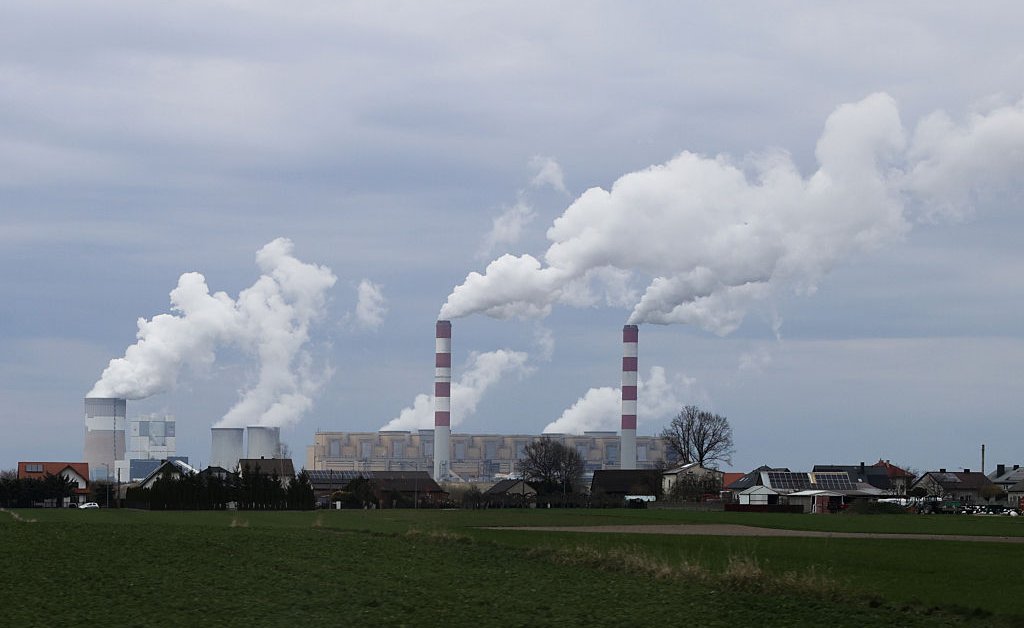Clean Air, Saved Lives: The Impact Of Emission Reduction On Public Health

Welcome to your ultimate source for breaking news, trending updates, and in-depth stories from around the world. Whether it's politics, technology, entertainment, sports, or lifestyle, we bring you real-time updates that keep you informed and ahead of the curve.
Our team works tirelessly to ensure you never miss a moment. From the latest developments in global events to the most talked-about topics on social media, our news platform is designed to deliver accurate and timely information, all in one place.
Stay in the know and join thousands of readers who trust us for reliable, up-to-date content. Explore our expertly curated articles and dive deeper into the stories that matter to you. Visit Best Website now and be part of the conversation. Don't miss out on the headlines that shape our world!
Table of Contents
Clean Air, Saved Lives: The Impact of Emission Reduction on Public Health
Air pollution is a silent killer, responsible for millions of premature deaths globally each year. But what happens when we actively work to reduce emissions? The impact on public health is profound, offering a powerful argument for continued investment in cleaner air initiatives. This article explores the vital link between emission reduction and improved public health outcomes.
The Deadly Toll of Air Pollution:
Before diving into the positive effects of emission reduction, it's crucial to understand the devastating consequences of air pollution. The World Health Organization (WHO) estimates that 7 million people die prematurely each year due to exposure to fine particulate matter (PM2.5) and other air pollutants. These pollutants, often stemming from vehicle exhaust, industrial emissions, and power generation, penetrate deep into the lungs and bloodstream, causing a range of health problems.
- Respiratory illnesses: Asthma, bronchitis, and lung cancer are significantly exacerbated by poor air quality.
- Cardiovascular disease: Air pollution contributes to heart attacks, strokes, and other cardiovascular conditions.
- Cognitive impairment: Studies increasingly link air pollution to reduced cognitive function and an increased risk of dementia.
- Premature births and low birth weight: Pregnant women exposed to high levels of pollutants are at greater risk of delivering prematurely or having babies with low birth weights.
The Positive Impact of Emission Reduction:
Thankfully, the picture isn't entirely bleak. Decades of research clearly demonstrate that reducing emissions translates directly into improved public health. Several strategies have proven particularly effective:
-
Transitioning to renewable energy: Shifting away from fossil fuels and towards solar, wind, and other renewable energy sources dramatically reduces greenhouse gas emissions and air pollutants. This has a direct positive impact on respiratory health, reducing hospital admissions and improving overall quality of life. [Link to a relevant study on renewable energy and public health]
-
Implementing stricter vehicle emission standards: Modern vehicles equipped with catalytic converters and other emission control technologies significantly reduce the pollutants released into the atmosphere. Stringent regulations and incentives for electric vehicles further accelerate this positive trend. [Link to a government website on vehicle emission standards]
-
Investing in public transportation: Encouraging the use of public transport, cycling, and walking reduces reliance on private vehicles, leading to cleaner air and improved physical activity levels within the community. [Link to an article on the benefits of public transport]
-
Improving industrial processes: Implementing cleaner production technologies in industries like manufacturing and energy generation minimizes the release of harmful pollutants. This requires both government regulation and corporate responsibility. [Link to an article about green industrial practices]
Measurable Improvements in Public Health:
The benefits of cleaner air are not merely theoretical. Numerous studies demonstrate tangible improvements in public health following emission reduction initiatives:
- Reduced respiratory hospitalizations: Cities that have successfully implemented air quality improvement programs have seen significant declines in hospital admissions for respiratory illnesses.
- Improved life expectancy: Areas with cleaner air have experienced increases in life expectancy, reflecting the reduced burden of pollution-related diseases.
- Lower rates of premature mortality: Studies have shown a direct correlation between reductions in air pollution and lower rates of premature deaths.
The Future of Clean Air Initiatives:
While significant progress has been made, the fight for clean air is far from over. Continued investment in research, policy changes, and technological innovation is crucial to further reduce emissions and protect public health. This includes advocating for stricter environmental regulations, supporting sustainable transportation options, and promoting public awareness about the dangers of air pollution. The health of our communities depends on it.
Call to Action: Learn more about air quality in your area and support initiatives aimed at reducing emissions. Small individual actions, combined with larger-scale policy changes, can make a significant difference in creating a healthier future for all.

Thank you for visiting our website, your trusted source for the latest updates and in-depth coverage on Clean Air, Saved Lives: The Impact Of Emission Reduction On Public Health. We're committed to keeping you informed with timely and accurate information to meet your curiosity and needs.
If you have any questions, suggestions, or feedback, we'd love to hear from you. Your insights are valuable to us and help us improve to serve you better. Feel free to reach out through our contact page.
Don't forget to bookmark our website and check back regularly for the latest headlines and trending topics. See you next time, and thank you for being part of our growing community!
Featured Posts
-
 Call The Midwife Expands Film And Prequel Series On The Way
May 08, 2025
Call The Midwife Expands Film And Prequel Series On The Way
May 08, 2025 -
 Kicker The Kickers Resilience Refined Through Fire
May 08, 2025
Kicker The Kickers Resilience Refined Through Fire
May 08, 2025 -
 10 Side Stage Singers Announced For Preston And Steves Mmrbq 2025
May 08, 2025
10 Side Stage Singers Announced For Preston And Steves Mmrbq 2025
May 08, 2025 -
 Wta Rome Osakas Progression Sets Stage For Swiatek And Fonseca
May 08, 2025
Wta Rome Osakas Progression Sets Stage For Swiatek And Fonseca
May 08, 2025 -
 Karen Read Retrial Day By Day Livestream Coverage Of Testimony
May 08, 2025
Karen Read Retrial Day By Day Livestream Coverage Of Testimony
May 08, 2025
